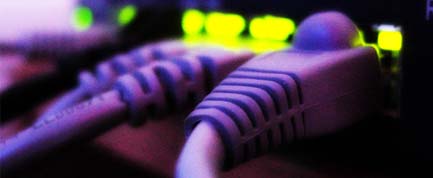Experts: WikiLeaks Hactivism is Not Cyberwarfare

Media outlets worldwide have dubbed the recent hacking attacks against former WikiLeaks partners as "cyberwarfare," and talk about it as if it were a new phenomenon.
But security experts scoff at the idea; they point out that online revolts actually have a long history and warn that real cyberwarfare, when it happens, will be much more devastating.
In the past few days, a group of hackers called "Anonymous" have been targeting businesses that recently cut ties with WikiLeaks – from MasterCard and Visa to PayPal, Amazon and even Sarah Palin's site, SarahPAC.com – in an attempt to shut down the sites by flooding them with a large amount of traffic. Although some businesses suffered outages, they are back online.
The "Operation Payback" campaign, as the "hacktivists" have dubbed it, comes on the heels of these businesses withdrawing their connections to WikiLeaks after the site published thousands of secretive U.S. diplomatic reports. The release of these documents has since caused strains between the government and various allies.
Although the identity of the hackers, their numbers, and their locations are unknown, security industry experts said the media is blowing the incident out of proportion.
"It's absolutely ludicrous to call this cyberwarfare," said Bruce Schneier, chief security technology officer of BT, a communications company. "It's probably just some kids taking websites out for political reasons. Unless President Obama sends the military to attack a bunch of hackers in, say, Germany, it’s not war. The police would be called, not the troops."
Schneier believes that incidents like this are so common that the story would have slipped under the radar if WikiLeaks and its recent controversy weren’t attached to it.
Get the world’s most fascinating discoveries delivered straight to your inbox.
"We see things like this all of the time, and it’s been happening as far back as the 90s," Schneier said. "Sure, people can do war-like things, but one person does not declare war."
Hacktivism
This is not the first time a large number of people have banded together in cyberspace for a cause. According to Jose Nazario, senior manager of security research at security firm Arbor Networks, one of the first notable "hacktivism" attacks occurred in 1999 during the NATO conflict in the former Yugoslavia. A group of hackers rallied to deface the site belonging to the U.S. embassy in China.
The protesters overthrew the site's homepage and slathered it with racist and anti-government slogans. They also wrote their hacker group name at the top, Level Seven Crew, and made references to an FBI raid against another hacking community, one that some of its members belonged to.
More recently, Russian hackers targeted sites in Georgia in 2008 during a dispute between the two countries. Meanwhile, Twitter was defaced last December by a group of Iranian hackers who replaced the blue Twitter backdrop with a black and red screen and an image of the Iranian flag. The hackers also tagged the page with a blend of English and Farsi digital graffiti.
One example of a message: "This site has been hacked by the Iranian Cyber Army. The USA thinks they control and manage Internet access, but they don't. We control and manage the Internet with our power, so do not try to the [sic] incite Iranian people."
The current "Anonymous" attacks are also not the first time political cyberprotests have had financial ramifications against popular businesses. In one instance, a Canadian high school student with the alias MafiaBoy launched a series of denial-of-service attacks in 2000 against Yahoo!, Amazon, eBay and others.
What is Cyberwarfare?
Even as historians and security experts debate the exact definition of cyberwarfare, most generally agree that the world has yet to experience it.
Herbert Lin, a computer science and security expert at the National Research Council of the National Academy of Sciences, believes a cyberwar is possible – we just haven't seen one yet.
"Under traditional international law, war means two nations in armed conflict with each other,” Lin said. "Under more recent laws, it can mean one nation in armed conflict with a subnational group, such as the U.S. against Al Qaeda. Hackers attacking PayPal is not war in the sense that the law defines it."
Cyberwarfare, when it does happen, will be more disruptive to daily life than anything that has come before, and could even result in the loss of life.
"For example, hackers could gain access to critical controls that are online," said Nazario of Arbor Networks. "Imagine if power is lost in the dead of winter and water supplies are cut. Electricity is also necessary in institutions like hospitals."
Compared to such scenarios, the attacks currently being executed by "Anonymous" are relatively harmless. Ultimately, Operation Payback should not cause alarm, he added.
"Hot topics and David and Goliath stories are always popular for those wanting to create a virtual revolution — the little guys against corporate America," Nazario said.
"As of right now, the movement is still growing in the number of system attacks, but we expect this to [slow down] between today and tomorrow."
Reach TechNewsDaily senior writer Samantha Murphy at smurphy@techmedianetwork.comThis e-mail address is being protected from spambots. You need JavaScript enabled to view it . Follow her on Twitter @SamMurphy_TMN.
 Live Science Plus
Live Science Plus






